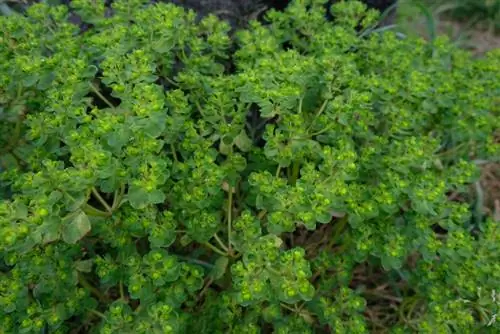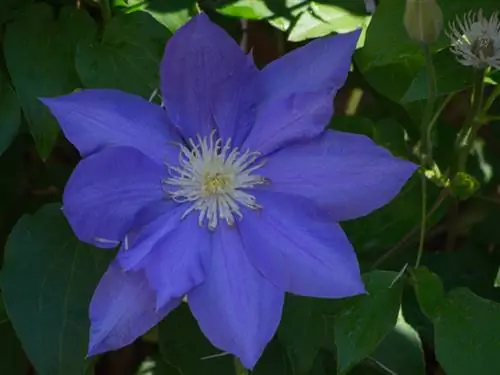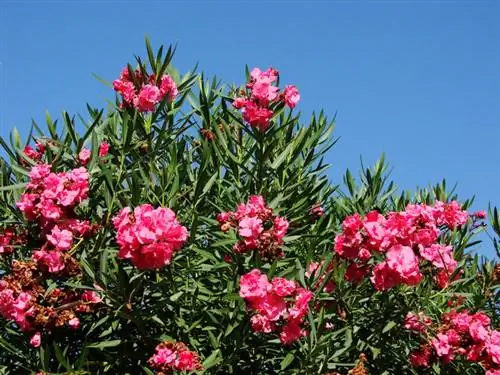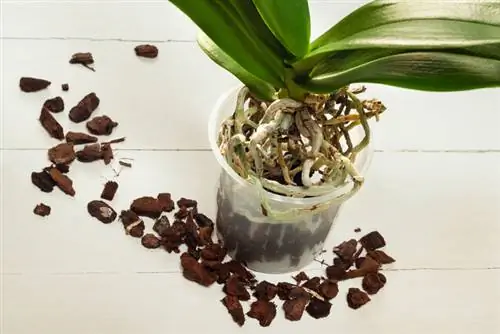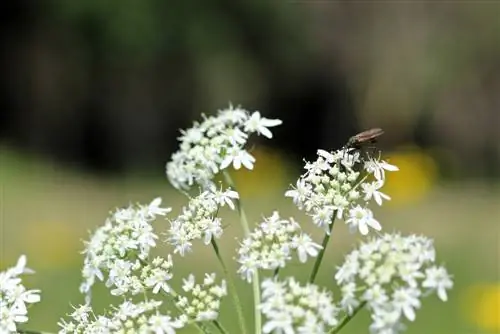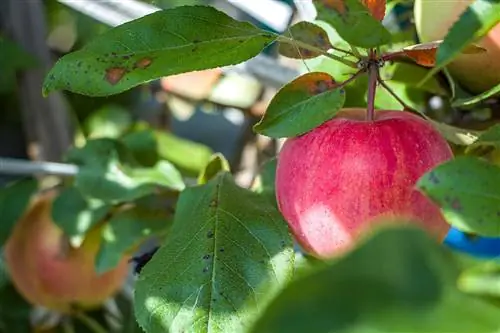- Author admin leonars@hobbygardeners.com.
- Public 2023-12-16 16:46.
- Last modified 2025-06-01 06:02.
The genus Euphorbiaceae includes around 2,000 species. Some varieties remain relatively small and are valued by garden lovers as an easy-care addition to perennial beds or rock gardens. However, the plant is very fast-growing and spreads quickly. This can make it a real nuisance. The most widespread in our gardens is the sun spurge, which we would like to discuss in more detail here.
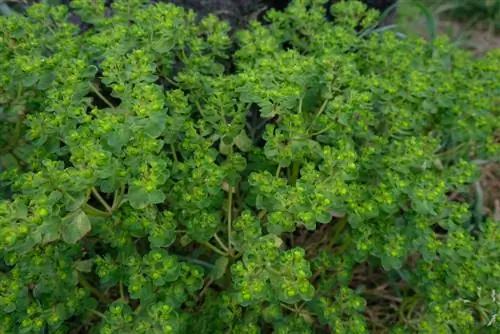
How to control milkweed in the garden?
To control spurge weeds, you can hoe regularly, mechanically weed or, in the case of cultivated garden spurge, cut off the flowers before seeds develop. Wear protective gloves as the plant sap is poisonous.
Description
- Annual, shallow-rooted herb
- Growth height: 10 to 35 centimeters
- Stem: Fleshy with usually only two opposing side branches
- Leaves: Smooth-edged, round, short stem, strong green
- Flower: Green-yellow with five-pointed umbel
- Flowering period: April - November
- Location: Sunny to partially shaded
- Substrate: Prefers humus- and nutrient-rich soils
- Germination time: All year round, as soon as the temperatures are high enough
If the plant is injured, a sticky, slightly caustic sap flows out.
The hoe helps
The sun spurge hardly suppresses other ornamental plants, so control is only necessary if the plant grows too extensively. Seed weeds such as spurge can also be weakened so much by regularly hoeing the bed that they do not spread any further.
Since spurge is a shallow-rooted plant, you can also simply weed the perennial mechanically.
Cultivate garden spurge specifically, it is important to prevent seed production. Therefore, cut off the flowers before the seeds have fully developed. This will prevent you from suddenly finding rampant milkweed plants in garden corners or the cracks in the paving slabs.
Insect willow and medicinal plant
Please remember that milkweed plants feed beneficial insects such as parasitic wasps, which in turn decimate the aphids in your garden. So it's definitely worth giving the pretty perennials a place in the garden.
In natural medicine, the caustic plant sap is used to combat warts and corns. However, it is better to leave the targeted application to a specialist.
Tip
All euphorbia species are poisonous. Since contact with the milky sap can lead to painful swelling, reddening of the skin and allergic reactions, you should definitely wear gloves when working on the plant.

